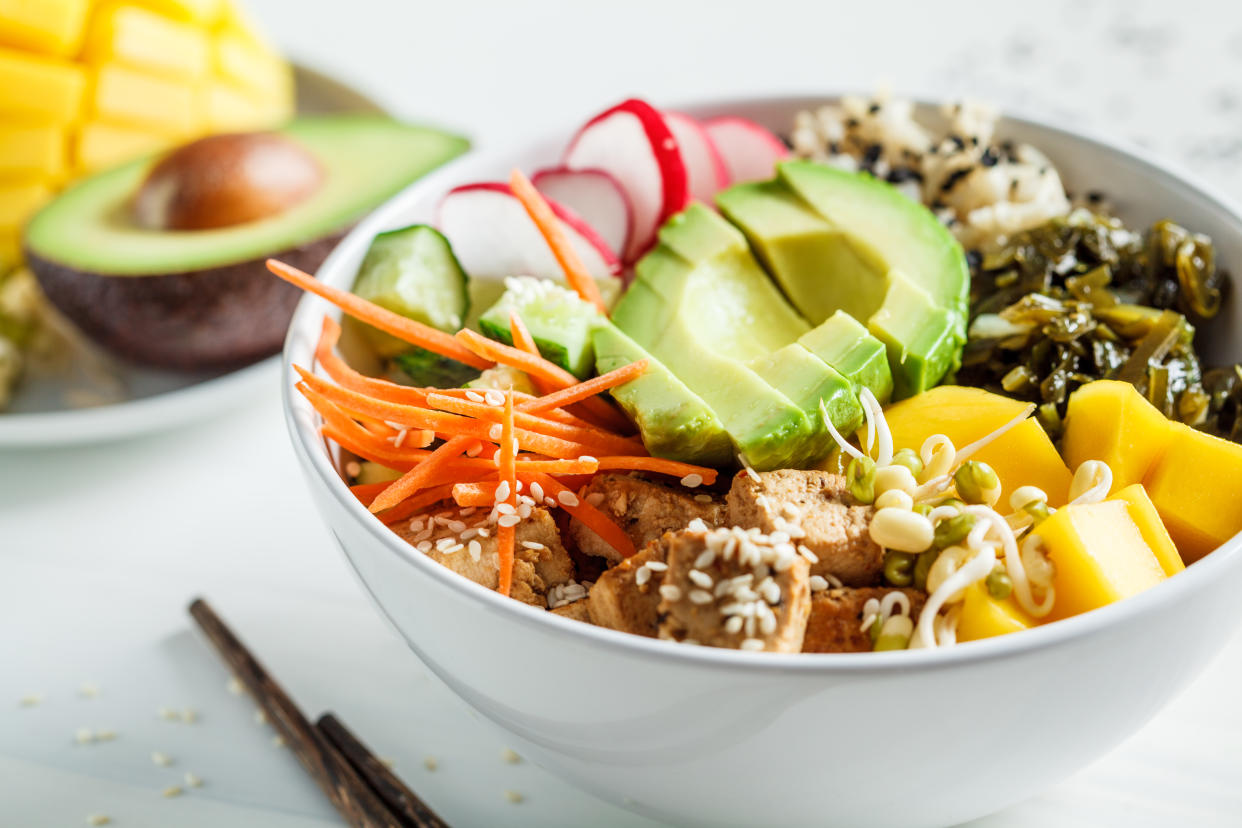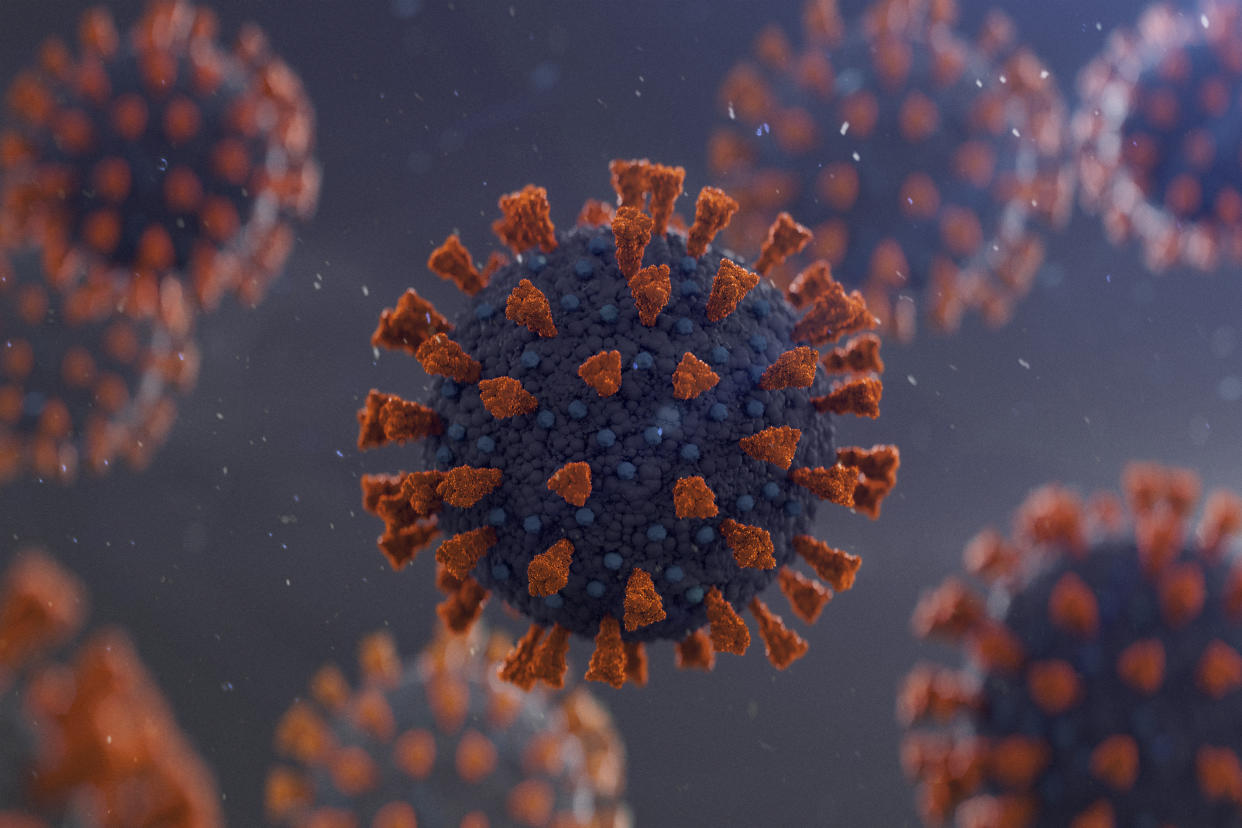A vegan diet cuts severe COVID risk by 73%, study suggests

Going vegan could cut the risk of severe coronavirus complications by 73%, research suggests.
The health pros and cons of adopting a plant-based diet have long been debated. While vegans generally have a higher vitamin C and fibre intake, forgoing meat and dairy could leave people deficient in vitamin B12, iron and calcium.
To better understand how a person's diet influences their risk of COVID-19, the disease caused by the coronavirus, a team from Stamford Hospital in Connecticut analysed more than 2,800 frontline medics in six countries.
The workers whose diet was predominantly vegan – made up of vegetables, lentils and nuts with little meat – were 73% less likely to develop moderate-to-severe disease.
Adding fish or seafood to the plant-based diet cut the risk by 59%, the results suggest.
Read more: Vegan dinner cuts heart disease risk by 10%
A diet high in vegetables, but low in processed meat and high-fat dairy, may help people maintain a healthy weight – with obesity long being linked to severe COVID-19.
Nevertheless, the Connecticut team's results remained the same after adjusting for the workers' body mass index, suggesting another factor may be at play.

Coronavirus aside, airway infections killed around 2.4 million people worldwide in 2016 alone. Nutritional factors are known to influence a person's immune response.
To better understand how dietary choices affect coronavirus complications, the Connecticut team analysed healthcare workers "with substantial exposure to COVID-19 patients" from the UK, US, France, Germany, Spain and Italy.
The workers completed a survey between July and September 2020, providing information on their diet over the past year and any coronavirus complications they endured.
Read more: Green tea compound could combat severe COVID
Of the workers, 568 are known or suspected to have caught the coronavirus, which was moderate to severe in 138 cases.
A predominantly vegan diet, with or without fish, was linked to a lower risk of coronavirus complications.
While a vegan diet may ward off COVID complications, it was not linked to a reduced risk of catching the coronavirus itself or overcoming the infection any quicker.
The results – published in the journal BMJ Nutrition Prevention & Health – remained the same after the team accounted for the workers' weight, age, ethnicity, smoking status and activity levels.
Coronavirus complications are known to be more common among elderly people and those of a non-white ethnicity. Smoking and a sedentary lifestyle may also raise the risk.
Read more: Simple habits that could ward off coronavirus
Why the results occurred is unclear, but vegan diets tend to be high in nutrients that boost immune health.
For pescatarians, oily fish like salmon and mackerel are also rich in vitamin D and omega-3 fatty acids, anti-inflammatory nutrients that could ward off COVID-19.
Watch: Do coronavirus vaccines affect fertility?
The team has stressed their study was observational, and therefore does not prove cause and effect.
Most of the participants were also male, meaning the results may not apply to women, as well as people who do not work in healthcare.
"The trends in this study are limited by study size and design (self-reporting on diet and symptoms) so caution is needed in the interpretation of the findings," said Shane McAuliffe, from the NNEdPro Nutrition and COVID-19 Taskforce.
Professor Gunter Kuhnle from the University of Reading agreed, adding: "The study relied entirely on self-reporting and a lot [of] data has shown self-reported dietary intake is unreliable.
"The study has [also] been conducted in different countries with widely different diets. A plant-based diet in Spain or Italy is likely to be different from a mainly plant-based diet in Germany or the UK".
Nevertheless, McAuliffe added: "A high-quality diet is important for mounting an adequate immune response, which in turn can influence susceptibility to infection and its severity.
"This study highlights the need for better designed prospective studies on the association between diet, nutritional status and COVID-19 outcomes".
Watch: What is long COVID?



